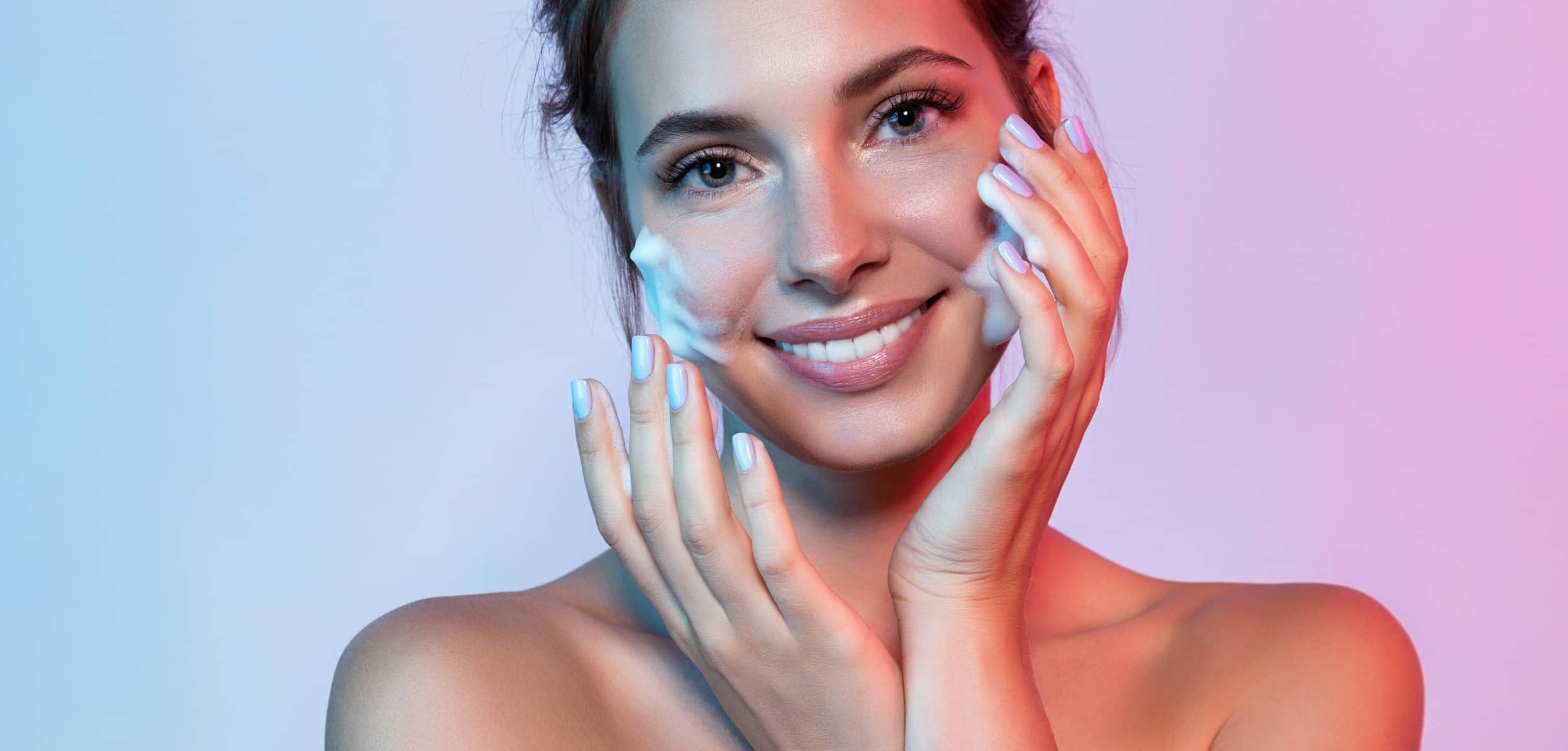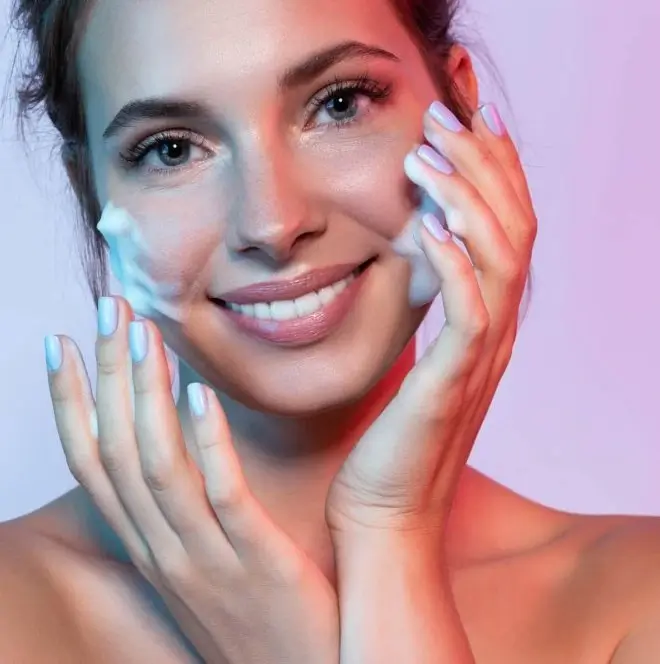
Spending so much time at home in the past year or so has renewed interest in home beauty projects. Masks, peels, cleansers, toners, moisturizers, conditioners…the list goes on. Do-it-yourself (DIY) skin care recipes are ubiquitous on the internet, and their advocates evangelize about how the treatments can transform your skin. However, most dermatologists are skeptical about those claims.
While there are many ‘natural’ items in our kitchens, many are likely to cause break-outs, allergic reactions, and can potentially damage your skin. So, please be careful before you mix those skin care treatments. What DIYs Are Safe and Effective?
Some DIY skin care treatments can be fun and feel good. However, if you are going to spend the time trying to improve your skin, it makes sense to use your time wisely and to get the best results. So, what is actually safe and effective? You may be surprised to learn that your pantry contains ingredients that are both. Here is a list of some DIY choices:
Oils
Olive Oil
Coconut Oil
Light oils include sunflower or safflower
Produce
Avocado
Cucumber
Papaya
Banana
Strawberry
Scrub Ingredients
Oatmeal
Coffee
Matcha
Sugar
Dairy
Yogurt
Anti-bacterial
Honey
Vinegar
Turmeric
Personalized anti-aging treatments. For you.

What to Avoid
Citrus
Tea tree oil – contact dermatitis
Raw egg – risk of bacterial ingestion (salmonella)
Oils
Oils may be used as a make-up remover, moisturizer, and as the base for face scrubs. Aim for single ingredients, organic and fresh. When exposed to oxygen or light, oils can start to degrade and become rancid. If it smells strange, or you wouldn’t cook with it, don’t put it on your face. All oils can help to seal in skin water and prevent drying. Oils are considered to be moderately comedogenic (can clog pores), so use caution on your face if you’re prone to breakouts.
Olive Oil is loaded with antioxidants and vitamins that can enhance cell turnover, which can leave your skin looking brighter and feeling smoother. Olive oil face treatments can penetrate the skin even better than some expensive moisturizers.
Coconut Oil is similar to olive oil, but is heavier and has a higher comedogenic rating (can clog pores). It should only be used on the body, not the face since it could cause acne and breakouts on the face. On other parts of the body it can be soothing and anti-inflammatory which can lead to less redness and calming of the complexion.
Alternative lighter oils you may have in your pantry include sunflower, grapeseed, or safflower which will work. They can help protect skin from free radicals, from adverse effects of the sun, and are a good way to obtain vitamin E’s benefits for the skin.
Produce
Avocado is high in healthy fats, Vitamin A & E. Because it is packed with antioxidants, it can help with redness, inflammation and is good for dry or sensitive skin. When applied to the skin, natural oils can nourish and hydrate your skin.
Cucumber Slices placed on your eyes can add moisture and is a classic eye de-puffer. It lives up to its anti-inflammatory reputation and is loaded with antioxidants and nutrients like vitamin C and folic acid.
Papaya contains an enzyme that smooths rough skin and can unclog pores. Use cautiously on sensitive skin.
Bananas are rich in antioxidants, so apply them to your skin to help fight skin-damaging free radicals. You may also be left with more glowing skin, but avoid it if you have a latex allergy.
Strawberries can have strong astringent, anti-inflammatory, and antioxidant properties that can protect your skin from UV rays, and delay aging. Packed with alpha-hydroxylic acid that can help you get rid of dead skin cells, strawberries help with acne and dry flaky skin that comes with aging. Avoid if allergic to strawberries.
Dairy
Yogurt contains lactic acid, an alpha-hydroxy acid, that dissolves dead skin cells. When topically applied to the skin, a yogurt face mask can help moisturize, exfoliate, fight acne, prevent premature aging, relieve sunburn, and reduce discoloration. If you have a milk allergy, avoid it.
Anti-bacterial
Honey is a natural exfoliator and can remove dead skin cells which can help the new cells come up from underneath. Honey hydrates the skin, encourages healing, fades acne marks, makes the skin firm and some say it adds a dewy glow.
Vinegar (diluted) is one way to help minimize premature wrinkles when used in skincare as a toner, face wash, and even a spot treatment. Apple cider vinegar toner may help to tighten the skin and protect it from harmful environmental elements.
Body Scrub Ingredients
Oatmeal is a gentle face cleanser, and is good for eczema, acne, and allergy-prone skin, and has anti-inflammatory properties. Sitting in an oatmeal bath really does soothe itchy, dry, and irritated skin.
Ground Coffee Beans contain caffeine and may help reduce inflammation, redness, and puffiness, but avoid use on your face. The grounds (finely ground only) can remove dead skin for a brighter, lively complexion but can also damage more sensitive skin.
Matcha is a finely ground powder of green tea leaves and contains potent anti-inflammatory properties. It can help with the inflammation that comes with acne, rosacea, redness due to weather, and can even out overall skin tone.
Sugar shouldn’t be used on your face, but you can use it for the prevention of ingrown hairs. Use a gentle sugar scrub on other parts of your body to remove dry skin cells, remove oily buildup, and keep pores clean.
Turmeric is a spice that is high in antioxidants, slows down cell damage, reduces skin inflammation, evens out your skin tone, and can help with acne, psoriasis, and eczema.
Green Tea Rose Water or Mist acts as an antioxidant, and an anti-inflammatory. It can help with peeling, red, irritated skin experienced with eczema or psoriasis.
Tea Bags for Itchy Eyes specifically cooled Chamomile tea, can be used as a cold compress, and can relieve itchy eyes. Avoid it if you are allergic to ragweed.
What to Avoid
Citrus products can cause irritation and phytophotodermatitis (a blistering rash with sun exposure). A good example is lemon in skin brightening recipes can make skin extra sensitive to sunlight, causing blisters or a rash.
Tea Tree Oil does have anti-inflammatory properties, but it can also cause irritation, allergic eczema (contact dermatitis).
Ground sunflower seeds can strip the skin, and rather than leave it smooth and moisturized it can damage your skin.
Raw eggs – even egg whites – can lead to bacterial infection (salmonella). Some claim that egg whites and yogurt can join forces to clear your pores, but it’s probably not worth the risk.
Conclusion
Ideally, you should use skin care treatments products that have been through clinical trials for your skin problems. Also, remember to patch test anything before you put it on your face. Place a bit of the product on your arm, cover it with plastic, and leave it there for a bit. If you don’t get any bad reactions, you’ve got the green light to use these dermatologist-approved recipes on your face. Visit Winona Wellness Center today for your prescribed medication. “This article is for informational purposes only and does not constitute medical advice. The information contained herein is not a substitute for professional medical advice. Always talk to your doctor about the risks and benefits of any treatment.”



